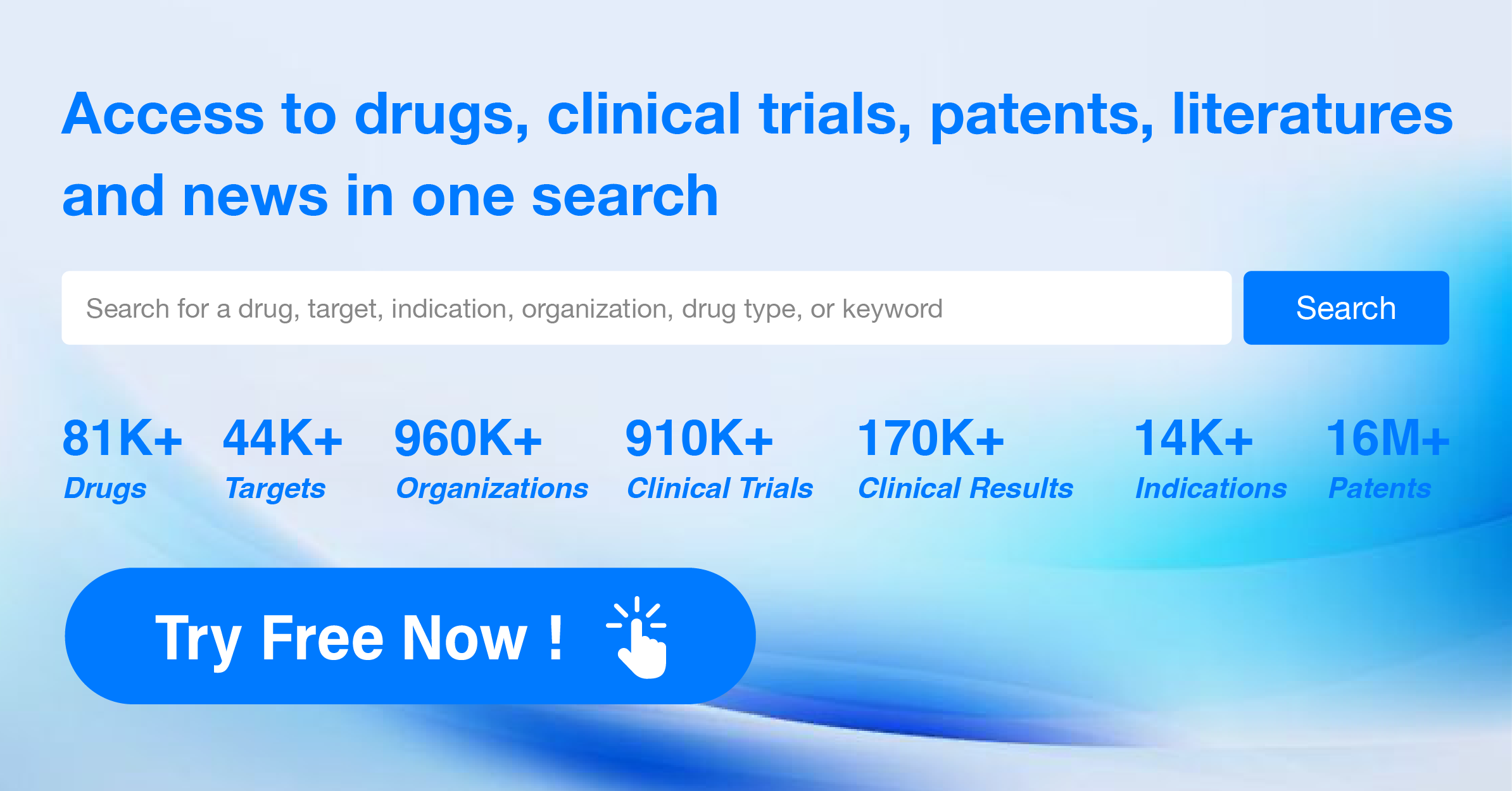Pharma Frontiers: Daily Digest of Global Pharmaceutical News - April 29
1.Pfizer's Gene Therapy Beqvez Receives FDA Approval for Marketing
On April 27th, Pfizer announced that its one-time gene therapy, Beqvez (fidanacogene elaparvovec), has been approved by the U.S. FDA for use in adults aged 18 or older with moderate to severe Hemophilia B. This approval applies to patients who are currently receiving prophylactic treatment with Coagulation Factor IX (FIX), or have had, in the present or past, life-threatening bleeding, or recurrent severe spontaneous bleeding events. These patients have been tested and do not have detectable neutralizing antibodies against the capsid of AAVRh74var (adeno-associated virus serotype Rh74var) as approved by the FDA.
Hemophilia B is a life-threatening, degenerative disorder caused by a genetic mutation that leads to a deficiency in Coagulation Factor IX. Individuals with this disorder are prone to bleeding in joints, muscles, and internal organs, resulting in pain, swelling, and joint damage. Current treatments typically involve lifelong, regular intravenous infusions of Factor IX multiple times weekly or monthly, often exceeding a hundred times a year, to temporarily replace or supplement the low levels of this clotting factor.
The FDA's approval of Beqvez was primarily based on the results from the single-group, open-label Phase 3 clinical trial BENEGENE-2, which aimed to evaluate the efficacy and safety of Beqvez in adult males with moderate to severe Hemophilia B (defined as circulating Factor IX activity ≤2%), aged between 18 and 65 years. A total of 45 patients were enrolled in this trial. Analysis demonstrated that the BENEGENE-2 trial achieved its primary endpoint, showing non-inferiority and superiority in annualized bleeding rate (ABR) for overall bleeding events, compared to the FIX prophylactic treatment regimen.According to positive data released by Pfizer in December 2022, the gene therapy reduced the patients' ABR by 71% and the annualized rate of Factor IX infusions by 92%.
2.Novartis's PI3Kα Inhibitor Oral Granule Formulation Approved in the US
Recently, the FDA's official website announced the approval of a new oral granule formulation of Novartis's PI3Kα inhibitor, Vijoice (alpelisib), previously available only as tablets. Vijoice tablets are available in 50 mg, 125 mg, and 200 mg formulations, with the granule type now offered in 50 mg packets. According to the prescribing information, the most suitable formulation should be prescribed based on the required dosage and patient needs, but tablets and granules must not be used concurrently to attain the prescribed dose. The granule formulation is particularly beneficial for patients who have difficulty swallowing tablets and is convenient for patients requiring only a daily dose of 50 mg. It is important to note that if the prescribed dose is 125 mg or 250 mg, patients should not combine multiple 50 mg packets or split a single packet for use.
Alpelisib is a PI3Kα inhibitor first approved by the FDA on May 24, 2019, under the brand name Piqray. It is indicated for use in combination with fulvestrant for the treatment of postmenopausal women and men with HR-positive, HER2-negative, PIK3CA-mutated, advanced or metastatic breast cancer, marking it the first treatment specifically targeting PIK3CA mutation in HR+/HER2- advanced breast cancer. In April 2022, alpelisib was approved by the FDA for a new indication under the brand name Vijoice, for the treatment of patients aged 2 years and older with severe PIK3CA-Related Overgrowth Spectrum (PROS) requiring systemic therapy, which is the indication for this newly updated granule formulation.
3.Dupilumab versus Upadacitinib in Atopic Dermatitis: Successful Study from AbbVie
Recently, AbbVie announced the success of an open-label head-to-head phase IIIb/IV LEVEL UP study, where at week 16, upadacitinib demonstrated superior performance over dupilumab in treating moderate-to-severe atopic dermatitis (AD) patients. The study achieved its primary endpoints for significant improvement in Eczema Area and Severity Index (a minimum of 90% improvement from baseline, known as EASI 90) and a score of 0/1 on the Worst-Pruritus Numerical Rating Scale (WP-NRS), indicating complete or near-complete resolution of itch.
According to the press release, the LEVEL UP trial is the first head-to-head clinical trial specifically for AD. The upadacitinib group included adolescents aged 12 and older (weighing at least 40 kg) and adults with AD, showing that upadacitinib was more effective than dupilumab in achieving the primary endpoint at week 16, with 19.9% vs. 8.9% of patients reaching both EASI 90 and WP-NRS 0/1 (p<0.0001).
Furthermore, in secondary endpoints, upadacitinib also demonstrated advantages over dupilumab, including rapid achievement of almost complete skin clearance and itch improvement. Upadacitinib vs. dupilumab groups achieved EASI 90 scores of 40.8% vs. 22.5% (p<0.0001), and WP-NRS 0/1 scores of 30.2% vs. 15.5% (p<0.0001) respectively.
Regarding safety, the LEVEL UP study did not observe any new safety signals, and upadacitinib's safety profile was consistent with previous AD studies. The most common adverse event (AE) in both groups was nasopharyngitis, with the same incidence rate of serious AEs at 0.9%. The dupilumab group reported one serious infection, while the upadacitinib group did not. There were no reports of malignancy, severe cardiac adverse events, venous thromboembolic events, or treatment-induced fatalities in either group.
4.GeneQuantum's next-generation TROP2 ADC receives clinical approval
On April 28, the CDE official website announced that GeneQuantum's GQ1010 injection clinical trial application has been approved. GQ1010 is a next-generation ADC targeting TROP2, with potential to be best-in-class. GQ1010 represents an independently developed TROP2-targeted ADC by GeneQuantum, employing its unique enzyme-mediated site-specific conjugation technology (iLDC). Through a stable "open-ring" linker, it conjoins a next-generation camptothecin analog with an anti-TROP2 monoclonal antibody. Preclinical data indicate that GQ1010 exhibits superior stability and efficacy compared to the leading TROP2 ADCs, with good safety. In various TROP2-positive tumor models tested, GQ1010 demonstrated stronger in vitro cytotoxicity and bystander killing effects than DS1062. Additionally, GQ1010 showed strong in vivo anti-tumor activity in different CDX models including triple-negative breast cancer, gastric cancer, head and neck cancer, and pancreatic cancer, outperforming DS1062 and Trodelvy (sacituzumab govitecan), consistent with the in vitro research data. The study also reveals that GQ1010 contains a highly stable linker, minimal reduction in the drug-to-antibody ratio (DAR), and minimal payload loss, thus expanding the therapeutic window compared to standard ADCs. In terms of safety, GQ1010 performed well, with no signals of interstitial lung disease (ILD) at a dose of 80 mg/kg. In April 2023, GeneQuantum signed an exclusive licensing agreement with Pyramid Corporation, granting them the rights to develop and commercialize GQ1010 globally outside the Greater China region (mainland China, Hong Kong, Macau, and Taiwan). Under the terms of the agreement, GeneQuantum will receive an upfront payment of 20 million USD and potential milestone payments up to one billion USD, in addition to tiered royalties based on net sales ranging from single to low double digits.
5.CAR-T Therapy Targeting CD99 Approved for Clinical Trials Against Solid Tumors
Bio-Raid Biotechnology recently announced that their proprietary CAR-T cell product targeting CD99, known as BRD-03, has received implied permission for clinical trials in China. This autologous T-cell injection, engineered with a Chimeric Antigen Receptor (CAR) specifically targeting CD99, is intended to be developed for the treatment of patients aged 18 and older with recurrent or refractory CD99+ bone or soft tissue sarcomas.
Share
Bone and soft tissue tumors vary significantly, originating from connective tissues such as bone and soft tissue and can occur in any part of the body, commonly in the limbs, the retroperitoneum, abdominal cavity, trunk, and head and neck regions. These malignancies, which encompass malignant bone tumors and soft tissue sarcomas, are rare, accounting for approximately 1% of all adult cancer cases and 15% of pediatric cancers. Clinically, these tumors show vast differences: those that are benign or of low malignant potential tend to be indolent, slow-growing, and primarily locally expansive; whereas highly malignant tumors exhibit strong local invasion, infiltrative or destructive growth, and are prone to local recurrence and distant metastasis.
Despite advances in research and treatment in recent years, survival rates generally do not exceed one year once chemotherapy fails, underscoring an urgent clinical need. According to the official website of Bio-Raid Biotechnology, the company has developed a research and development structure with a focus on blood cancer CAR-T, alongside concurrent projects on viral infection related CAR-T, solid tumor CAR-T, and universal CAR-T therapies. Bio-Raid Biotechnology has developed over a dozen CAR-T cell therapy products targeting various cancer antigens, including CD30, CD19, CD22, CD99, CD20, MMSA-1, BCMA, GP120, EGFR/EGFRVIII, Mesothelin, among others, with several already in exploratory clinical trials.
6."Synthetic Lethality" New Target! CSPC Pharmaceutical's Small Molecule New Drug Approved for Clinical Trials in the USA
Recently, CSPC Pharmaceutical Group announced that its class 1 new chemical drug, the highly selective MAT2A inhibitor SYH2039, has received approval from the U.S. FDA to conduct clinical trials in the United States for indications of advanced malignant tumors. The product was also approved for clinical trials in China in March of this year. Methionine adenosyltransferase 2A (MAT2A) is a new target in the highly regarded field of “synthetic lethality,” forming a synthetic lethal effect with MTAP-deficient tumors. According to literature, MTAP is a key enzyme in the methionine salvage pathway, and deficiency of MTAP is believed to lead to accumulation of MTA in cancer cells. Increased levels of MTA inhibit the activity of protein arginine methyltransferase 5 (PRMT5), heightening the tumor cells' sensitivity to further loss of PRMT5. It is estimated that the patient population with MTAP deficiency accounts for about 15% of all solid tumors, including approximately 15% of non-small cell lung cancers, 28% of esophageal cancers, 26% of bladder cancers, and 10% of stomach cancers. Against the backdrop of altered cell metabolism and high levels of MTA due to MTAP deficiency, the regulation of cellular SAM levels by MAT2A decreases, inhibiting PRMT5 activity and thereby selectively inducing tumor cell death. These studies provide a theoretical basis for the application of MAT2A inhibitors in cancers with MTAP deficiency. SYH2039 is a highly active MAT2A inhibitor that can selectively kill MTAP-deficient tumor cells while having minimal impact on normal cells. Preclinical studies have shown that SYH2039 effectively inhibits the growth of various MTAP-deficient tumor cells, including non-small cell lung cancer, glioma, gastroesophageal cancer, pancreatic cancer, and bladder cancer, exhibiting excellent in vivo and in vitro activity. It also demonstrates favorable pharmacokinetic properties and safety profiles.
7.RNAimmune and Hualan Biological have entered into a strategic partnership to jointly advance the clinical development and commercialization of an RSV mRNA vaccine
On April 26, Sirnaomics announced that its non-controlling subsidiary RNAimmune, Inc. has entered a strategic partnership with Hualan Biological. This collaboration aims to advance the clinical development and commercialization in China of the mRNA vaccine RV-1770, targeting the Respiratory Syncytial Virus (RSV). RV-1770 is an mRNA vaccine containing a proprietary lipid nanoparticle formulation, designed specifically for preventing RSV infections in adults. This innovative RSV mRNA vaccine incorporates clinically isolated strains of RSV and utilizes a unique AI-enhanced sequence scaffolding. In preclinical studies conducted on cotton rat models, the vaccine demonstrated immune responses and neutralization effects against both RSV A and B subtypes, along with excellent safety. The Investigational New Drug (IND) application for this vaccine was approved by the U.S. Food and Drug Administration (FDA) on December 15, 2023.
Under the terms of the strategic partnership, RNAimmune grants Hualan Biological exclusive rights to develop and commercialize RV-1770 in China. Both companies are optimistic about the future of this partnership and have already started to implement a joint work plan aimed at the successful development and commercialization of RV-1770 in China. As the development and commercialization of this mRNA vaccine progresses, both parties anticipate achieving further breakthroughs in the field of global public health. Through this collaboration, RNAimmune will receive upfront payments, milestone payments, and royalties from Hualan Biological, which will take responsibility for the clinical research, industrialization, and commercial expansion in China.




